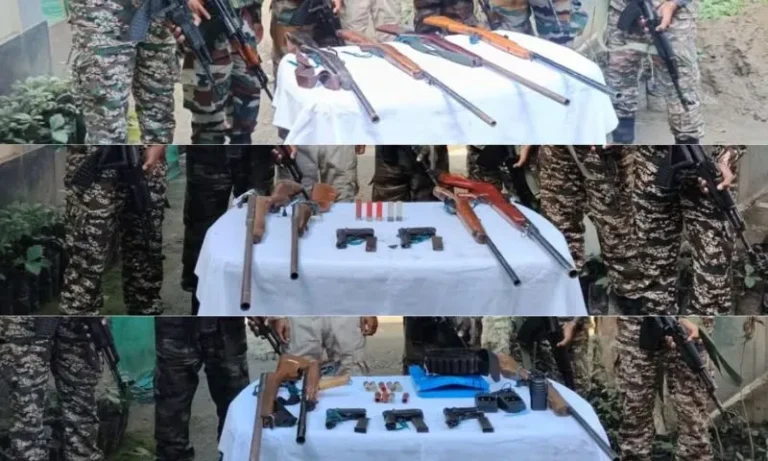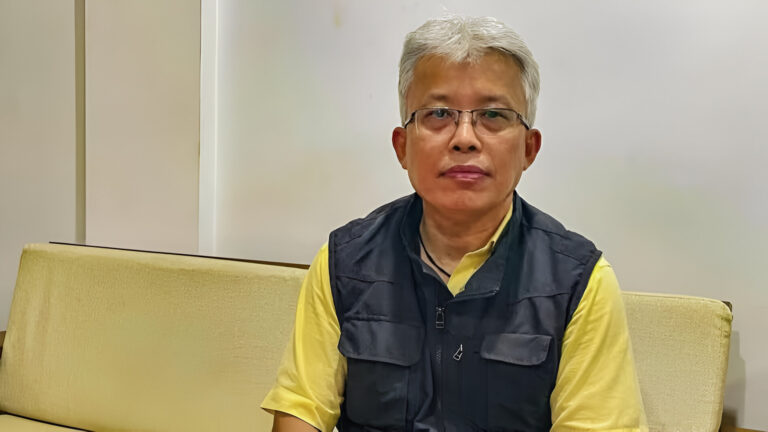Centre Holds Crucial Peace Talks with Meitei and Kuki Leaders in Delhi: A Step Towards Reconciliation
Summary of the News Article
In a significant move to address the ongoing ethnic conflict in Manipur, the Central government convened a high-level meeting with representatives from the Meitei and Kuki communities on April 5, 2025, in New Delhi. Facilitated by the Union Ministry of Home Affairs, the discussions aimed at rebuilding trust, restoring law and order, and establishing a sustainable roadmap for reconciliation. Key figures from both communities participated, including members from the All Manipur United Clubs’ Organisation (AMUCO), Federation of Civil Society Organisations (FOCS), Zomi Council, and Kuki Inpi Manipur.
The picturesque state of Manipur, known for its rich cultural tapestry and scenic landscapes, has been marred by ethnic conflicts that have strained the social fabric of the region. In a concerted effort to mend these fissures, the Central government orchestrated a pivotal meeting on April 5, 2025, bringing together leaders from the Meitei and Kuki communities in New Delhi. This dialogue, under the aegis of the Union Ministry of Home Affairs (MHA), signifies a proactive approach to fostering peace and unity in Manipur.
Backdrop of the Ethnic Strife in Manipur
Manipur’s demographic mosaic comprises various ethnic groups, with the Meitei and Kuki communities being prominent. Historically, these communities have coexisted, contributing to the state’s diverse cultural heritage. However, underlying tensions, often rooted in competition over resources, political representation, and historical grievances, have occasionally erupted into conflicts. The flare-up in May 2023 was particularly severe, leading to loss of lives and displacement of numerous families. Northeast Today
The Catalyst for the April 5, 2025 Meeting
The escalation of violence and its detrimental impact on Manipur’s socio-economic landscape necessitated intervention at the highest levels. Recognizing the urgency, the Central government, through the MHA, initiated dialogue aimed at addressing the root causes of the conflict and charting a path towards sustainable peace. The meeting on April 5, 2025, was a culmination of these efforts, reflecting a commitment to inclusive dialogue and reconciliation.
Key Participants and Their Roles
The dialogue saw participation from influential figures representing both communities, underscoring the seriousness of the initiative:Northeast Today
- Central Government Representation:
A K Mishra, former special director of the Intelligence Bureau, served as the interlocutor for the Central government. His extensive experience in intelligence and conflict resolution positioned him aptly to mediate the discussions. Northeast Today - Meitei Delegation:
The six-member team included representatives from the All Manipur United Clubs’ Organisation (AMUCO) and the Federation of Civil Society Organisations (FOCS). These organizations play pivotal roles in articulating the aspirations and concerns of the Meitei community. Northeast Today - Kuki Delegation:
Comprising seven leaders from various tribal bodies, the delegation featured:Northeast Today- Rev. Rose Infimate, President of Hmar InpuiNortheast Today+1Northeast Today+1
- Dr. David BuhrilNortheast Today
- N. Vumsuan Naulak, Chairman of Zomi CouncilNortheast Today
- Pauneilal, Secretary of Zomi CouncilNortheast Today
- Henlienthang, representing Kuki-Zo CouncilNortheast Today+5Northeast Today+5Northeast Today+5
- Ajang Khongsai, President of Kuki Inpi ManipurNortheast Today+1Northeast Today+1
- Thangzamang, President of the United Zou OrganisationNortheast Today The inclusion of these leaders highlighted the comprehensive approach to addressing the multifaceted concerns of the Kuki community. Northeast Today
Core Objectives of the Dialogue
The meeting was structured around several pivotal objectives:Wikipedia+2Northeast Today+2Northeast Today+2
- Rebuilding Trust:
Establishing mutual confidence between the Meitei and Kuki communities was paramount. Trust serves as the bedrock for any lasting peace initiative, necessitating open communication and acknowledgment of past grievances. - Restoring Law and Order:
Addressing the immediate concerns of safety and security was crucial. Discussions delved into strategies for de-escalating tensions, preventing further violence, and ensuring the protection of all citizens. - Charting a Sustainable Reconciliation Roadmap:
Beyond immediate relief, the dialogue aimed to outline long-term strategies that promote coexistence, equitable development, and political representation for all communities.
Challenges Addressed During the Talks
Several complex issues were tabled during the discussions, reflecting the depth of the conflict:
- Historical Grievances:
Both communities have historical narratives that inform their current positions. Recognizing and respecting these histories without allowing them to fuel further discord was a delicate balancing act. - Resource Allocation:
Competition over land, employment opportunities, and educational resources has been a longstanding source of tension. Creating frameworks for equitable distribution was a critical discussion point. - Political Representation:
Ensuring that both communities have a voice in legislative and administrative processes is vital for inclusive governance. Mechanisms to enhance representation and address perceived political marginalization were explored.
Outcomes and Resolutions
While the dialogue on April 5, 2025, was a significant step forward, it marked the beginning of a broader peace process. Key takeaways included:
- Commitment to Continued Dialogue:
Both delegations expressed a willingness to engage in ongoing discussions, recognizing that reconciliation is a progressive journey. - Formation of Joint Committees:
The establishment of inter-community committees was proposed to address specific issues, monitor the implementation of agreed-upon measures, and serve as platforms for conflict resolution at the grassroots level.
Conclusion: A New Chapter Begins
In conclusion, the Centre’s peace talks with Meitei and Kuki leaders in Delhi represent a crucial step towards mending long-standing divides and fostering a future built on mutual respect and shared aspirations. While the path ahead is challenging, the commitment to dialogue, the involvement of all stakeholders, and the willingness to confront historical issues head-on signal a new beginning for the Northeast.
This is more than just a political meeting—it’s a movement towards understanding, a step towards unity, and a promise that every voice will matter in shaping a brighter tomorrow. As the process unfolds, let’s keep our eyes on the progress, support the initiatives, and remain hopeful that together, we can build a future where diversity is not just tolerated but celebrated.
FAQs
- What was the primary purpose of the peace talks held in Delhi?
The peace talks aimed to address longstanding tensions between the Meitei and Kuki communities by fostering dialogue, building trust, and creating a shared vision for peace and development in the Northeast. - How do the peace talks benefit the local communities?
These talks provide a platform for addressing historical grievances, promoting cultural preservation, and implementing initiatives that lead to economic growth and social harmony, thereby directly benefiting the local communities. - What role does the Centre play in these peace talks?
The Centre acts as a facilitator and mediator, ensuring that the dialogue remains open, unbiased, and focused on long-term solutions while providing support for the implementation of agreed-upon initiatives. - How will continuous dialogue help in sustaining peace in the region?
Regular follow-up meetings and ongoing communication ensure that initial agreements are implemented, trust is maintained, and any emerging issues are addressed promptly, thereby sustaining long-term peace. - What global lessons can be applied to these peace talks?
Lessons from global reconciliation efforts, such as those in South Africa and Colombia, emphasize the importance of inclusive dialogue, transparency, and the integration of legal frameworks to ensure that peace processes lead to lasting societal transformation.



